Not that anyone cares but here are my top 10 favorite films. I do believe these are the best films of all time:
Seventh Seal (Ingmar Bergman)
La Dulce Vita (Federico Fellini)
The Bicycle Thief (Vittorio De Sica)
Wild Strawberries (Bergman)
The Virgin Spring (Bergman)
Rashomon, (Akira Kurosawa)
The Seven Samurai, (Akira Kurosawa)
La Strada (Federico Fellini)
Dr. Strangelove, (Stanly Kubrick)
Ordet (Carl Drayer)
Greatness has Left the Planet: Ingmar Bergman dies
Bergman
My Obituary for Bergman when he died (July 2007--he was born July 1918). It gives a general summary of his major films and his style and focuses on his greatest film, "The Seventh Seal." Bermgan is my very favorite director and "the Seventh Seal" is my very Favorite Film (along with "Wild Strawberries"). There are film critics who argue that is the greatest film ever made and I agree completely! This film Bergman's first major international success (1857).
Bergman is my favorite director, though he was an atheist his father was accomplished minister and Chaplin to the Queen of Sweden. Bergman deals whit religion in many of his films, he is not a mocking ridicule artist but deal sensitively with it and openly confronts his struggles over it and his desire for God and his desire for truth. Even though he did not believe in God he demonstrates a lot of sympathy perhaps even envy for the believer.
The Seventh Seal
(this is no. 1 on my list)
Wild Strawberries (1957)
(Bergman)
Released the same year as Seventh Seal this is my second favorite (sometimes first) film. It reinforced the image of Bergman as the greatest international director of his time. It's not a Rambo movie, there no explosions are car chases. On the Surface it sounds real boring, and old professor and daughter-in-law take a road trip across Sweden as he goes to receive an honorary degree as a life-time achievement award. The professor also takes an emotional journey in his mind from childhood to present reflecting upon how his life has gone. It's an existential classic. It's boring if you can only related to adventure movies but it's pleasant and thoughtful. It has provocative dream sequences that figure into the plot.
no 4 on my list
The Virgin Spring (1960)
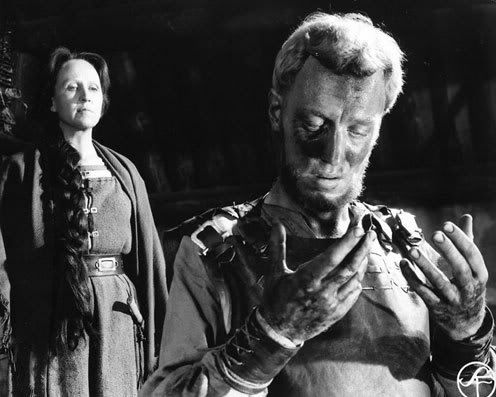
(Bergman)
This was a follow up to the two previous films, it is also one of Bergman's greatest. Coming on the heals of the other two it established him as the greatest director of his time. It's based upon the story by a Swedish writer and might be based upon a folk tale. Set in the middle ages and deals with the murder of a girls and her father's revenge.
no 5 on my list
Through a Glass Darkly (1961)
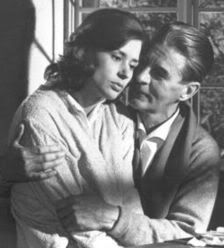
(Bergman)
This is the first in his trilogy. The three films Bergman made as his great Trilogy which were supposed to deal openly with the problems of religion and belief were "Through a Glass Darkly", "Winter Light," and "The Silence." Unfortuantely none of these were his among his greatest films. In my view if one complied trilogy of the three greatest films he made it would be those three listed above.
This film is about a woman's mental illness and struggles with God and her father.
Winter Light (1963)
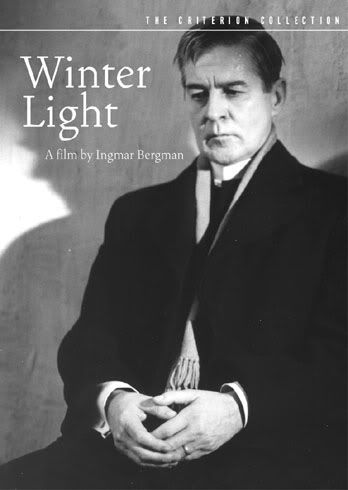
Second in Bergman's trilogy. This film is rarely reviewed. I have been told I'm the only one some people can find who really reviewed it. I feel it's a great film and I tell you why in the review. It's the one that most directly takes on the problem of belief in God of any of his films.
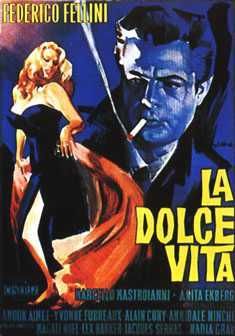
La Dulce vita, Federico Fellini
La Dulce Vita (The good life), Federico Fellini (1960). I am about the ten millionth person to review this film. I have nothing original to say about it, it's all coming from the commentary on the DVD plus what I've learned about Cinema over the years, but nevertheless I take great pleasure in discussing it. This is one of the greatest films ever made. It's clearly up there with Bergman's the Seventh Seal. It's going to be in the top ten of any critic worth his celluloid. It's number 2 in my top 10.* At first glance this might appear to be a banal look at a group of shallow play boy and play girl fashion model types form the late 50's who lived in Italy and had no thoughts in their heads. So what? I like to review great art films that have something to say about God, such as Wild Strawberries, but what does this pack of refugees from the Italian version of "the Nanny" have to do with God? A lot actually, there's much more going on there than meets the eye. First we have to fix the film in relation to cenematic history.
no 2 on my list
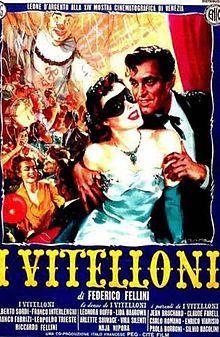
Federico Fellini's I Vitelloni
Victorio De Sica's The Bicycle Thief
The Shoes of the Fisherman
Vitorio De Sica (July 7, 1901-Nov 13, 1974)
De Sica is one of my favorite directors (his film "The Bicycle thief," is no 3 on my list of top 10). Italian born he began his film career before WWII as a romantic lead. He began to direct about the time the war broke out. The established himself as a direction of International repute with the Bicycle thieves (1848). This remains his greatest film in my opinion. Among his other greats, perhaps his greatest films are "Miracle in Milan" which is credited with inspiring the scene in ET where he's flying on the Bicycle and and "Umberto D." The Shoes of the Fisherman (1960s) is about the first non Italian pope (over a decade before JPII) who is played by Anthony Quinn and is a Russian and is called upon to deal with the forces of Communism and world hunger.
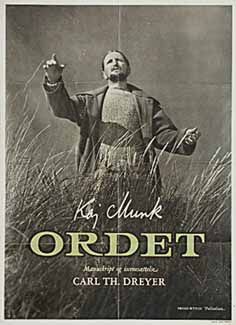
"Ordet": (The word), a film
by Carl Dreyer
Danish director Drayer was Bergman's older contemporary and probalby his inspiration. He's a lot like a Danish Bergman. Best known for his silent films such as Joan of Arch. Ordet was his only financial success among his sound films. It is also one of greatest critical successes.
no. 10 on my top 10 list
Two films by Robert Bresson: Balthazar and Country Priest
Mochette by Robert Bresson
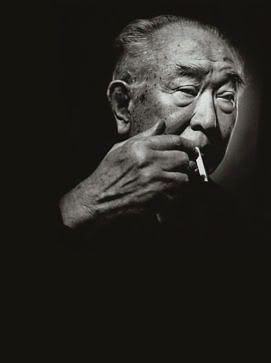
Akira Kurosawa (1910-1998)
Rashomon
(the 2014 version of
the review)
Here I turn to my second favorite director the Bergman of Japan. Kurosawa was trained in private military academy before world war II and thus part of his education was training with a sword as the old Smarai were trained. As a film maker he directed a slew of bloody Samurai films, for which he was very famous all over Asia. These were the Westerns are for us, like the cowboy movies of Japan. The most famous of his Samurai films is "the Seven Samurai" which was the prototype for the American Western "the Magnificent Seven."
no. 6 on my list top 10.
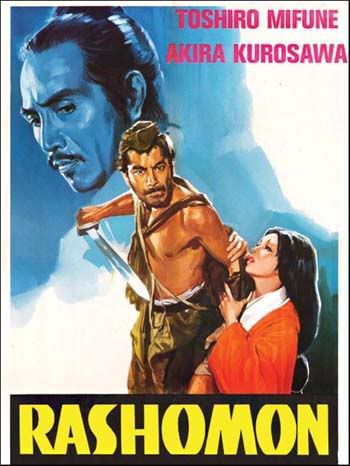
"Roshaimon" is a profound existential film. It is set n the Samurai period and invovles a Samurai duel but it's not really a Samurai movie and is not very bloody. Its' an existential thriller that imparts to the view a profound moral discussion that rivals the book of Job for its moving philosophical reflections upon the human condition.
Woman in the Dunes
Hiroshi Teshigahara's brilliant 1964 Sisyphan metaphor. This film grows on you. At first it seems tedious and closed in, then expansive and open to the wind.
American Films that I consider to be artistically great
Sansho The Bailiff Director:Kenji Mizoguchi
Kurisawa is the more Western-like Japanese director. Mizoguchi is liked in Japan for his strict Japanese style and flavor. This film is about slavery set in medieval Japan.
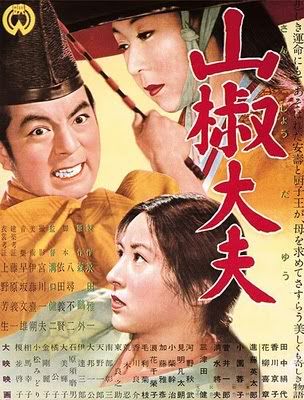
In the Shoes of the fisheman
Michael Johnson
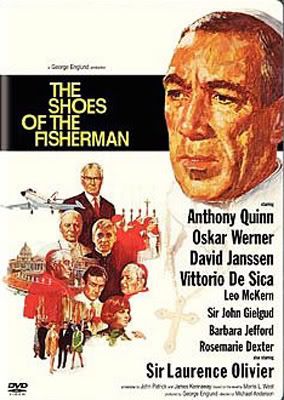
"Ace in the Hole"
Directed by Billy Wilder
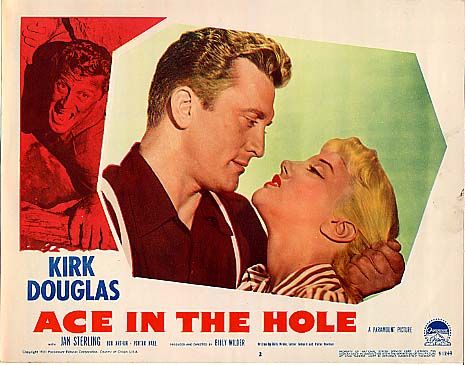
This is a fine film. It deserves to be on my list of American films that have an artistic quality I would put up against the Europeans and Japanese.
these are two nice films. Not great, they are almost fine but in a small low budget way. I enjoy them so I enjoy writing about them. Norman Foster was a fine director.
Brighty of the Grand Canyon
Norman Foster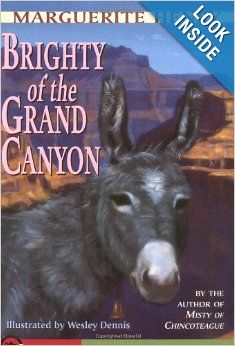
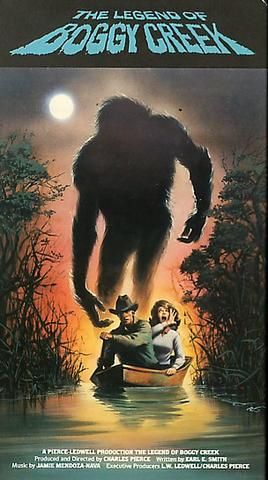
The Legend of Boggy Creek

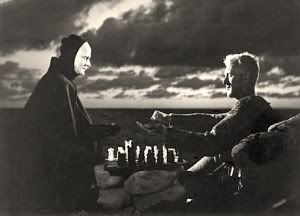
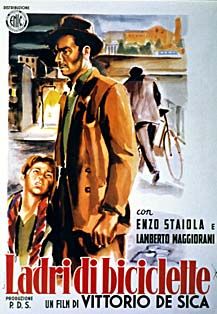
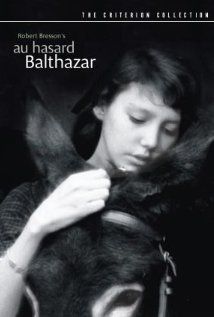
3 comments:
You must be doing Ernest Goes To Camp and Biodome in your next installment. ;-)
LOL Maybe I should do some "so bad they still suck but it's fun to make fun of them."
Maybe I'll the "legend of boggy creek."
Ha! Awesome!
Post a Comment